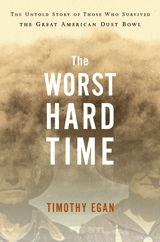Reject #4.
Oxford Unversity Press, publishers of Gary Giddins, passed on Destination Out!, after having requested a look. Seems they wanted less record guide, more narrative history, where we provide much record guide, snippets of narrative history. There are still a few more majors with the thing, Penguin chief among them, but they're taking their pretty little time with it.
In case you're wondering just what pearls of edutainmental wisdom might lie in wait for the unsuspecting editor keen on acquiring (or not) a book on free jazz, here's a sample from the proposal, a review of Herbie Hancock's 1973 outing, Sextant:
Herbie Hancock
Sextant
Columbia
Herbie Hancock, keybds, perc, etc.; Eddie Henderson, tpt, flh; Bennie Maupin, sax, bcl; Julian Priester, tb; Buster Williams, b; Billy Hart, ds; Dr. Patrick Gleeson, arp; Buck Clarke, perc.
Sextant is one of peaks of the fusion period and the culmination of Hancock’s Mwandishi band, which he led for several years. This far-reaching album takes Miles Davis's jazz-rock innovations and pushes them into the airy realm of pure electronics—all without ever losing the groove. Or, as Herbie put it, “My new music is set up to make you high.” Drawing inspiration from African music and culture, Sextant opens with “Rain Dance,” which uncoils a loop of percolating rhythms, building to an ocean of percussive sounds, one drop at a time. Trumpets and synthesizers are spliced in without warning, only to disappear moments later. Eddie Henderson’s horn gamely channels Miles, while a potent mix of clavinets, ARP synthesizers, and mellotrons make it hard to pinpoint any of the freaked-out sounds and beats. “Hidden Shadows” rides along on a funky, stuttering rhythm later appropriated by DJ Shadow. Horns play big-band charts, and Hancock’s frenetic piano threads through the mix while synthesizers wash over everything. The album closer, “Hornets,” manages to spin in place and swarm forward at the same time. Atonal sax squalls rage against fuzzed-out basslines and surging keyboards, but the cacophony never devolves into a jam or loses its urgency. And the kazoo keeps things light. Unfortunately, the album tanked on release and Hancock retreated to the friendly grooves of Headhunters. “I went from heavy musical trips that tried to expand people's minds to making people feel like getting up in the morning and going to work,” he admitted. Still, Sextant’s shadow looms large, influencing hordes of electronica artists, such as Aphex Twin, Squarepusher, and Mouse on Mars.
In case you're wondering just what pearls of edutainmental wisdom might lie in wait for the unsuspecting editor keen on acquiring (or not) a book on free jazz, here's a sample from the proposal, a review of Herbie Hancock's 1973 outing, Sextant:
Herbie Hancock
Sextant
Columbia
Herbie Hancock, keybds, perc, etc.; Eddie Henderson, tpt, flh; Bennie Maupin, sax, bcl; Julian Priester, tb; Buster Williams, b; Billy Hart, ds; Dr. Patrick Gleeson, arp; Buck Clarke, perc.
Sextant is one of peaks of the fusion period and the culmination of Hancock’s Mwandishi band, which he led for several years. This far-reaching album takes Miles Davis's jazz-rock innovations and pushes them into the airy realm of pure electronics—all without ever losing the groove. Or, as Herbie put it, “My new music is set up to make you high.” Drawing inspiration from African music and culture, Sextant opens with “Rain Dance,” which uncoils a loop of percolating rhythms, building to an ocean of percussive sounds, one drop at a time. Trumpets and synthesizers are spliced in without warning, only to disappear moments later. Eddie Henderson’s horn gamely channels Miles, while a potent mix of clavinets, ARP synthesizers, and mellotrons make it hard to pinpoint any of the freaked-out sounds and beats. “Hidden Shadows” rides along on a funky, stuttering rhythm later appropriated by DJ Shadow. Horns play big-band charts, and Hancock’s frenetic piano threads through the mix while synthesizers wash over everything. The album closer, “Hornets,” manages to spin in place and swarm forward at the same time. Atonal sax squalls rage against fuzzed-out basslines and surging keyboards, but the cacophony never devolves into a jam or loses its urgency. And the kazoo keeps things light. Unfortunately, the album tanked on release and Hancock retreated to the friendly grooves of Headhunters. “I went from heavy musical trips that tried to expand people's minds to making people feel like getting up in the morning and going to work,” he admitted. Still, Sextant’s shadow looms large, influencing hordes of electronica artists, such as Aphex Twin, Squarepusher, and Mouse on Mars.





1 Comments:
Well, I liked it.
Post a Comment
<< Home